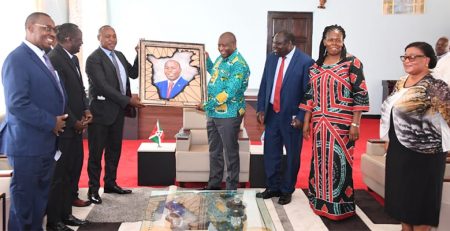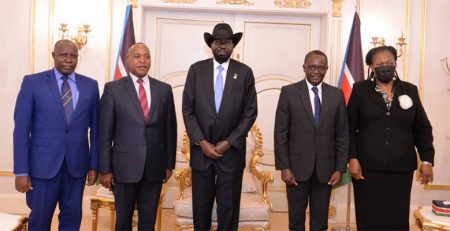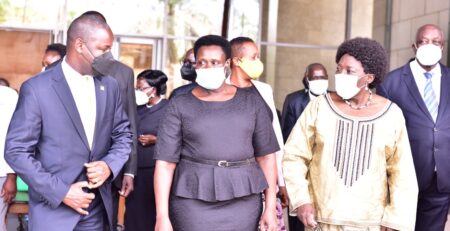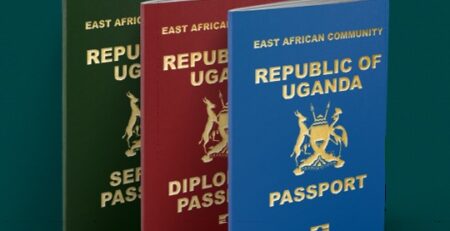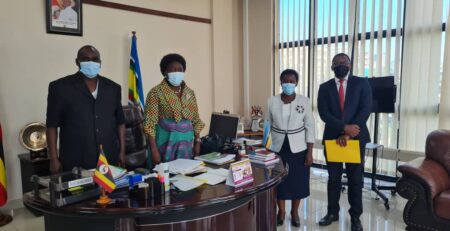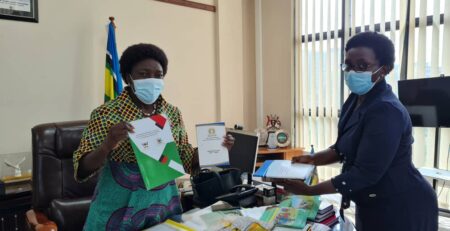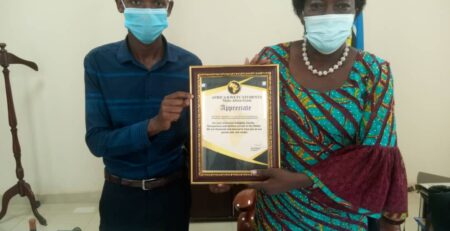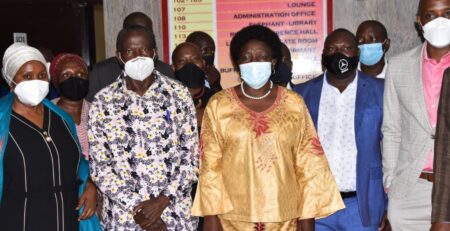East African Kiswahili Commission (EAKC) and Stakeholders Emphasize the Need for a Strategic Plan.

Executive secretary, East African Kiswahili Commission, Dr. Caroline Asiimwe during the meeting in Entebbe
Bishop Samuel
Entebbe, Uganda — Following the two-day meeting of Kiswahili experts from the East African Community (EAC) partner states, the East African Kiswahili Commission (EAKC) and its stakeholders have underscored the necessity of a Strategic Plan to drive the Kiswahili agenda within the community and beyond. This plan is seen as essential in laying a foundation for the future development of both the Commission and the Kiswahili language.
The EAKC has called for active engagement from stakeholders who are deeply involved in the development and usage of Kiswahili across various domains. In implementing these strategies, the Commission highlighted the need for deliberate efforts to enhance collaboration among Kiswahili stakeholders in partner states, particularly in areas where there are capacity challenges.
Strategic Plan Highlights
1. Integration of Kiswahili Curriculum: Following the EAC Council Directive, developing a harmonized Kiswahili curriculum to be implemented across all EAC partner states, ensuring consistency in language instruction and assessment.
2. Enhanced Teacher Training Programs: Establishing specialized training programs for teachers to teach Kiswahili as an additional language to improve pedagogical skills and proficiency.
3. Resource Development: Creating and distributing Kiswahili language resources, including textbooks, digital tools, and audiovisual materials, to support effective teaching and learning.
4. Youth as Key Drivers: The strategic plan focuses on the youth as the primary drivers of the integration agenda. The EAKC recognizes that the future of society lies with the youth, who are an active generation characterized by creativity, innovation, and transformative ideas. Focusing on youth in Kiswahili language development aims to change the narrative about Africa. Many young people in the EAC are multilingual and use different languages creatively and innovatively.
5. Resource Mobilization: Stakeholders emphasized the need for enhanced resource mobilization through various avenues such as donor funding, multilateral organizations, crowdfunding, private sector agencies, sponsorships, and grants.
6. Digitalization and Technological Integration: Identified as one of the key innovations, the integration of digitalization and technology will support the implementation of Kiswahili development and usage. This includes the creation of digital learning resources, AI translation apps, e-learning platforms, and online courses.
7. Regional and Global Visibility: The plan also aims to enhance the regional and global visibility and positioning of Kiswahili for opportunities in trade, diplomacy, and cultural exchanges.
8. Cultural Exchange Initiatives: Promoting programs that celebrate Kiswahili heritage and encourage cross-border interactions among students and educators.
9. Public Awareness Campaigns: Launching campaigns to highlight the importance of Kiswahili as a regional lingua franca and its role in fostering unity and socio-economic development.
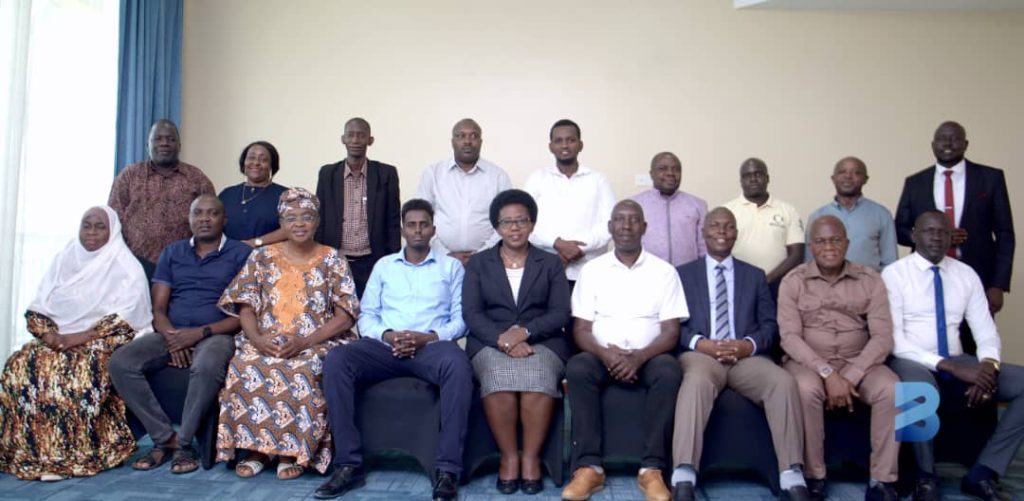
In her interaction with the press, Dr. Asiimwe Caroline, the East African Kiswahili Executive Secretary, remarked on the importance of stakeholder engagement, she said: “Engaging stakeholders across all domains is key to our strategic plan. By collaborating with education ministries, universities, schools, media, and cultural organizations, we ensure a broad approach to promoting Kiswahili. Our focus includes assessment and research to identify gaps and tailor successful language development practices to Kiswahili’s needs. We are dedicated to curriculum and educational material development, enhancing technology integration, and robust teacher training. Dr. Caroline Asiimwe retaliated her call to the participants that promoting Kiswahili in media is crucial; she emphasized the need to work with media partners, leverage social media campaigns, and engage content creators to popularize Kiswahili on a global scale. Cultural and community engagement through initiatives integrating cultural heritage and establishing global partnerships will further elevate the language.
Legislative and policy support, coupled with enhanced resource allocation, is vital. We are committed to clear monitoring and evaluation strategies and fostering international collaborations to make Kiswahili a respected language in diplomacy, business, and academia.”
The meeting concluded with the adoption and signing of the report, and stakeholders called on the EAKC to expedite the finalization and revision of the draft plan. The final draft is expected to be ready for validation and submission to the Sectoral Council by April.
This collaborative effort marks a significant step towards the promotion and development of Kiswahili, solidifying its role as a unifying language within the East African region and beyond.
End

